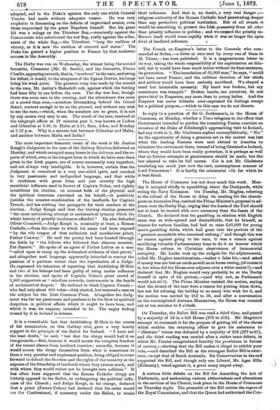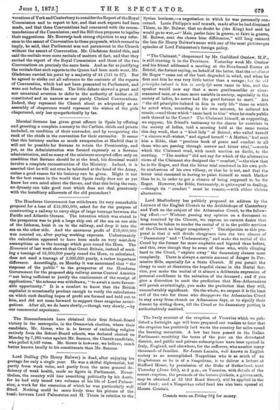A curious little debate on the Bill for Amending the
Act of Uniformity, and authorising various abbreviations and alterations in the services of the Church, took place in the House of Commons on Thursday night. The preamble of the Bill recites the report of the Royal Commission, and that the Queen had authorised the Con- vocations of York and Canterbury to consider the Report of the Royal Commission and to report to her, and that such reports had been made, and that these Convocations bad concurred with the recom- mendations of the Commission; and the Bill then proposes to legalise their suggestions. Mr. Bouverie took strong objection to any refer- ence to the assent of Convocation to these proposals, which seemed to imply, he said, that Parliament was not paramount in the Church without the assent of Convocation. Mr. Gladstone denied this, and said the recitals were mere recitals of matters of fact, and that they recited the report of the Royal Commission and those of the two Convocations on precisely the same basis. And as far as justifying the recitals that such reports to the Queen had been made went, Mr. Gladstone carried his point by a majority of 44 (141 to 97). But he agreed to strike out all reference to the contents of the reports of Convocation, which had not been presented to Parliament, and were not before the House. The little debate showed a great and not unnatural aversion to defer to the authority of bodies so ill constituted and so narrow as our purely Clerical Convocations. Indeed, they represent the Church about as adequately as an assembly of chaperones would represent the wishes of the girls .chaperoned, only leas sympathetically by far.



































 Previous page
Previous page